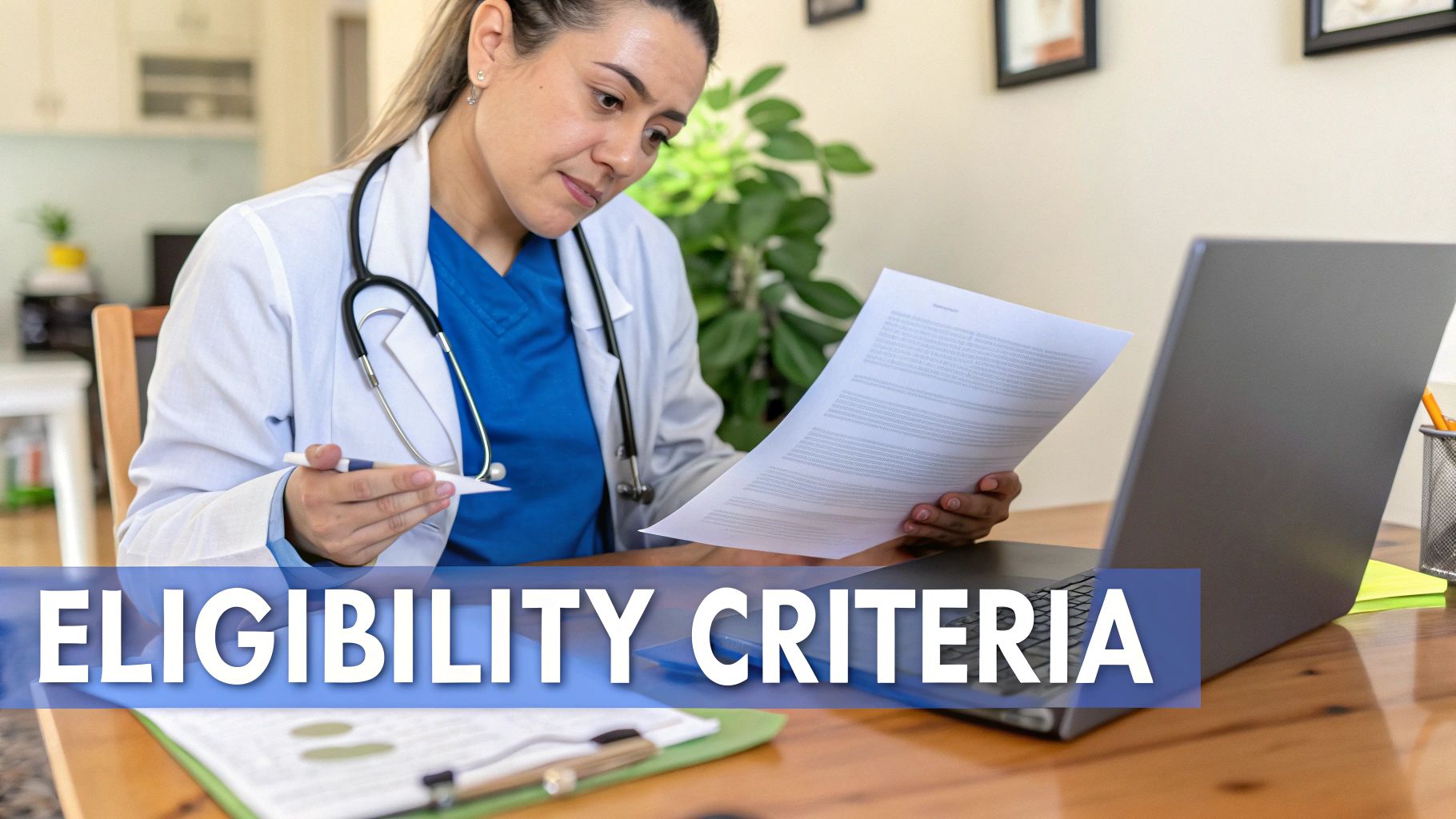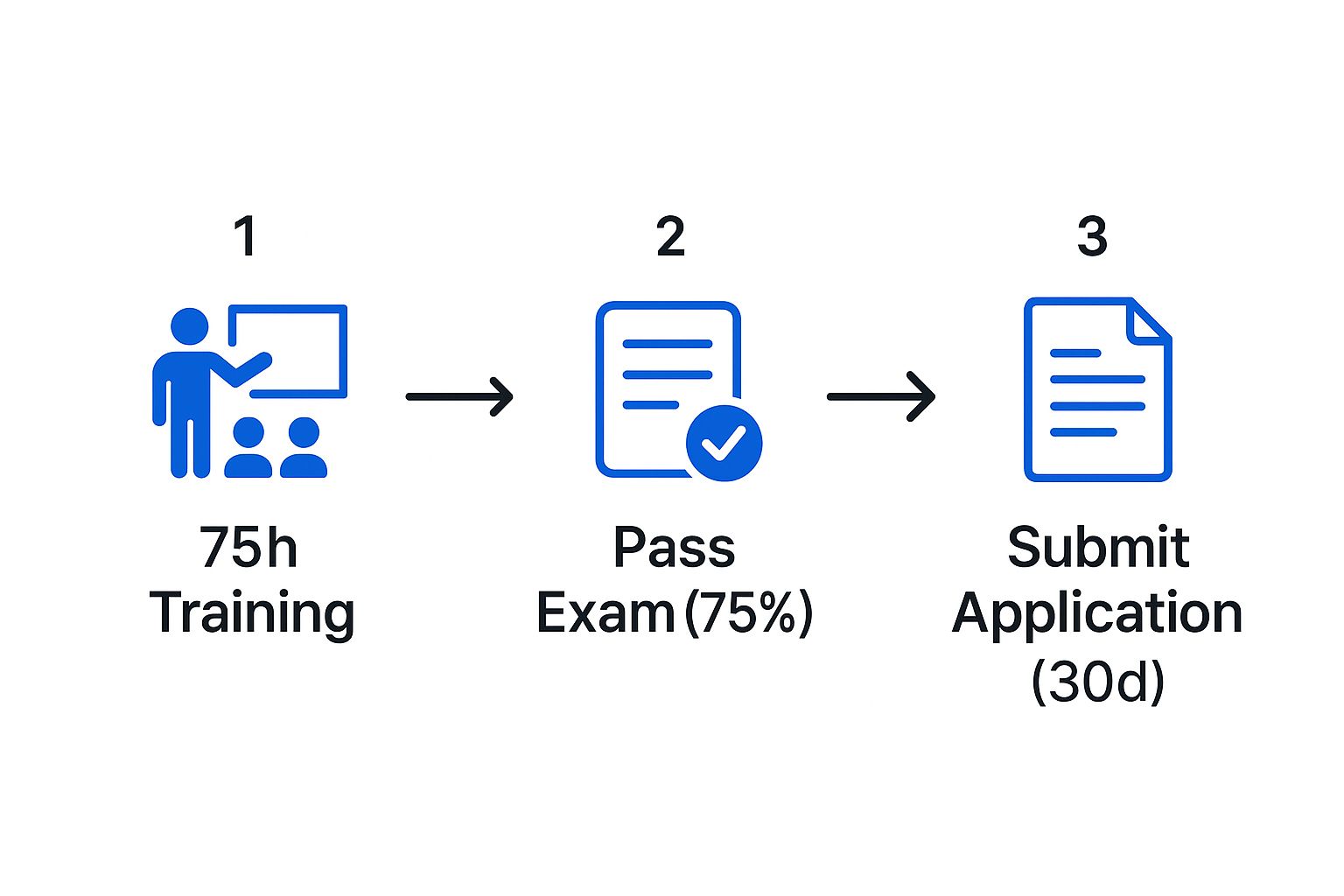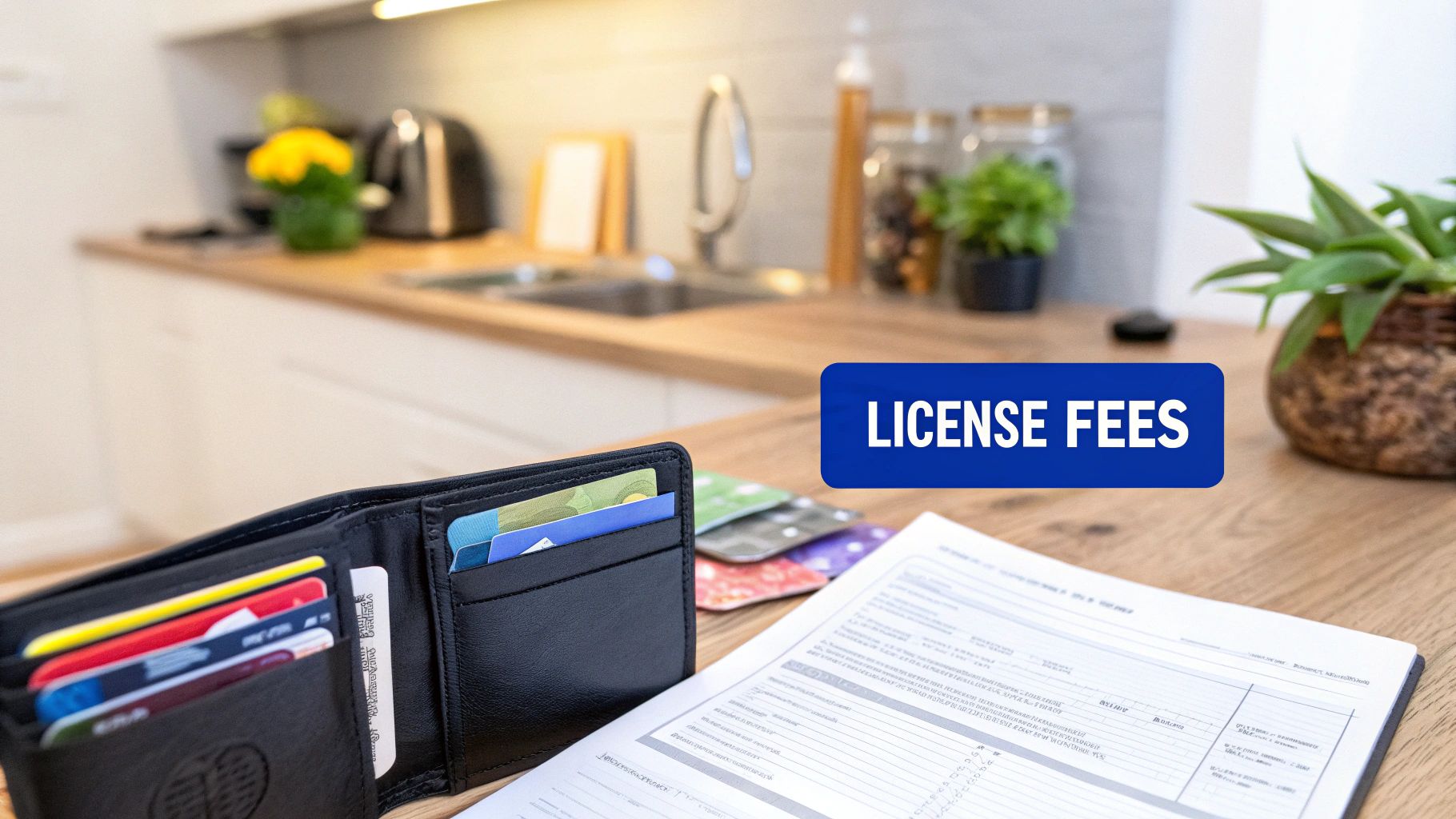If you're looking to become a Certified Homemaker-Home Health Aide (CHHA) in New Jersey, you're not just starting a job. You're stepping into a rewarding, stable career where you make a real difference. The path to your home health aide license in NJ is a clear, state-regulated process managed by the New Jersey Board of Nursing, designed to set you up for success.
Why a CHHA Career in New Jersey Is a Great Move
Let's be honest: choosing a career path is a big deal. Deciding to become a CHHA in New Jersey puts you right at the heart of the healthcare community. With our state's growing senior population, the demand for compassionate, skilled aides who can provide care at home has never been higher. This is about more than just a paycheck; it's about being the person who allows someone to live with dignity and comfort in their own home.
Think of it as becoming a lifeline. You’ll be supporting seniors and individuals with disabilities every single day, helping them with tasks that might otherwise be impossible. This guide will walk you through the entire journey, from finding the right training program to getting that official license from the Board of Nursing.
The Importance of State Certification
New Jersey is serious about protecting its most vulnerable residents, and for good reason. The state has required certification for all CHHAs since the early 1990s, with the New Jersey Board of Nursing overseeing every step. This isn't just a piece of paper—it’s a non-negotiable requirement that proves you meet high professional standards.
Getting certified is mandatory. It involves completing a state-approved training program, passing a competency exam, undergoing a criminal background check, and having a job offer from a licensed New Jersey home health agency.
This structured process ensures every CHHA is qualified, vetted, and ready for the real-world responsibilities of the role. The state's own comptroller's report even details how these regulations were put in place to protect clients and uphold the integrity of the profession.
What to Expect on Your Path to Licensure
The journey to your home health aide license in NJ isn't complicated, but it does follow a specific set of steps. Think of it as a checklist you need to complete.
Here are the key milestones you’ll hit along the way:
- Meeting the Basic Requirements: First, you'll need to confirm you meet the state's criteria for age, education, and background.
- Completing the Training: You'll enroll in and graduate from a 76-hour course that's been approved by the state.
- Passing the Exam: This is where you'll prove you have the knowledge and hands-on skills to provide excellent care.
- Submitting Your Application: The final step is getting all your official paperwork filed with the Board of Nursing.
Each stage is designed to build on the last, giving you the skills and confidence you need to launch a career that truly matters.
Meeting the Core Eligibility Requirements

Before you can even think about enrolling in a training program or taking the exam, you have to get the basics squared away. The state has some foundational requirements, and meeting them upfront is the only way to avoid hitting a wall later in the process.
Think of this as your pre-flight checklist before starting your journey to getting a home health aide license in NJ.
First, let's cover the two most straightforward hurdles. You absolutely must be at least 18 years old. You also need a high school diploma or its equivalent, like a General Educational Development (GED) certificate. These rules are in place to make sure every applicant has a baseline level of maturity and education for the big responsibilities that come with this role.
But your eligibility goes well beyond just age and education. The State of New Jersey requires a thorough criminal history background check for every single person who applies. This isn't just a formality—it's a critical safety measure designed to protect the very people you'll be caring for.
Understanding the Background Check
This is a comprehensive process. It involves submitting your fingerprints, which are then run through both state and federal databases to flag any criminal history. It's so important to be completely honest about your past, because certain convictions can unfortunately be disqualifying.
Offenses that will almost certainly prevent you from getting certified include:
- Crimes of violence, like assault or robbery.
- Theft, fraud, or any kind of forgery.
- Certain drug-related offenses.
- Any history of patient or resident abuse or neglect.
If you have a minor offense from many years ago, it might not automatically disqualify you, but you should be ready to discuss it. Ultimately, the New Jersey Board of Nursing looks at each case individually to make a final decision, considering what the offense was and how long ago it occurred.
Key Takeaway: The criminal background check is a non-negotiable part of your application. Honesty is everything. Any attempt to hide or misrepresent your history will almost certainly lead to an immediate denial of your application for a home health aide license in NJ.
The Importance of a Social Security Number
Another absolute must-have is a valid U.S. Social Security Number (SSN). Your SSN is used for several critical steps in both the licensing and employment process. It’s how the state verifies your identity, how employers will track your earnings for taxes, and it's directly tied to your background check.
For anyone hoping to become a home health aide, having an SSN is a fundamental piece of the puzzle. It proves you're authorized to work in the United States—a non-negotiable prerequisite for any licensed home health agency that will eventually hire you. You simply cannot complete the application with the Board of Nursing without one. You can learn more about how our agency supports caregivers by checking out some of our company branding materials.
Getting these key eligibility points confirmed right now will put you on a clear, direct path toward achieving your certification.
So, you're ready to become a Certified Homemaker-Home Health Aide (CHHA) in New Jersey. That's fantastic. This next step—picking a training program—is easily the most important decision you'll make. It’s not just about getting a certificate; it’s about building the foundation for your entire career. The right program will give you the skills and confidence to provide amazing care from your very first day on the job.

The New Jersey Board of Nursing is very specific about what's required. They mandate a 76-hour curriculum for every approved HHA course, and that number isn't random. It’s carefully designed to get you ready for the real world of home care.
That time is broken down into two crucial parts. You'll spend 60 hours in classroom or online instruction, where you'll learn the theory behind great caregiving—everything from patient rights and safety to understanding chronic illnesses. The other 16 hours are spent in hands-on clinical practice, where you’ll work under the watchful eye of a Registered Nurse, putting what you've learned into practice.
Verifying a Program's Legitimacy
Before you even think about paying a deposit, your first move is to make sure the program is officially approved by the New Jersey Board of Nursing. It's a sad reality, but there are unapproved courses out there trying to attract students. Finishing one of those programs means you won't be eligible for a home health aide license in NJ.
Always, always check a program's status directly with the Board. A good school will be completely open about its accreditation and should have no problem showing you its approval information. Don't be shy about asking for proof—it's your future on the line. At our agency, we value professionalism and clear standards, which you can see reflected in things like our company's visual branding.
A key tip I've learned from talking to countless successful aides: Call the school and ask them about their clinical rotation sites. A program with deep roots in the community will have solid partnerships with local healthcare facilities, which translates to better, more valuable real-world experience for you.
What to Look For in a Quality Program
Just because a program is approved doesn't mean it's the best one for you. Once you've confirmed a school is legitimate, it's time to dig a little deeper to see if it’s a good match for your learning style, your schedule, and what you want to achieve in your career.
Here are a few critical things to ask about before signing up:
- Class Size: How big are the classes? You want a setting small enough for you to get personalized attention and ask questions without feeling lost in a crowd.
- Instructor Experience: Who is teaching the course? Look for experienced Registered Nurses who have actually worked in home care. Their stories and insights are priceless.
- Job Placement Help: Do they help you find a job after you graduate? Many top-tier programs have resources, host career fairs, or have strong connections with local agencies.
- Exam Pass Rates: Ask them straight up: "What's your students' pass rate on the state competency exam?" A high pass rate is a huge sign that their curriculum and teaching methods work.
Think about the program's schedule, too. Some courses are intensive, full-time programs that can get you certified in just a few weeks. Others offer part-time or evening classes, which are perfect if you're juggling another job or family life. Finding that right balance is a key part of setting yourself up for success.
You've made it through the training program—a huge accomplishment! Now you're on the home stretch. The last big step is putting together your application packet and, of course, passing the state competency exam. This part is all about attention to detail and showing what you've learned.
Getting the paperwork right for your home health aide license in NJ is the next crucial milestone. The New Jersey Board of Nursing has a very specific application packet, and every single field matters. One missed signature or a missing document can cause frustrating delays, so it’s worth taking your time to get it perfect.
Pulling Your Application Packet Together
Think of your application as your professional introduction to the Board of Nursing. It’s the complete file that proves you’ve met all the state's requirements. From verifying your training program to confirming you have a job offer waiting, each document has a specific purpose.
Here’s what you’ll need to gather up:
- The Official Application Form: Make sure it's filled out completely and legibly. No blank spaces!
- Promise of Employment Letter: This is a must-have. It’s a formal letter from a New Jersey-licensed home health agency confirming their intent to hire you once you're certified.
- Completed Fingerprinting Forms: This is part of the mandatory criminal background check process.
- Two Passport-Sized Photos: These need to be recent and meet the standard requirements for passport photos.
This image really breaks down the journey you’ve been on, from day one of training to this final step.

As you can see, it highlights the three pillars of getting certified—training, the exam, and the application—and shows how one builds right on the next.
Facing the Competency Exam with Confidence
Once your application is submitted and being processed, it's time to register for the New Jersey HHA competency exam. This is the state’s way of making sure you have both the book smarts and the hands-on skills to provide safe and effective care. Your training program will give you all the details on how to sign up with the third-party testing service.
The exam itself is broken down into two parts:
- Written (or Oral) Test: This is a multiple-choice exam covering everything from your 60 hours of classroom learning. You'll see questions on patient rights, infection control, emergency procedures, basic nutrition, and more. A score of at least 75% is needed to pass.
- Skills Evaluation: For this part, a Registered Nurse will watch you perform a few essential caregiving tasks, usually on a manikin. You might be asked to show how to properly wash your hands, take vital signs, or safely help someone move from a bed to a wheelchair.
The skills evaluation is where I see most people get nervous. Just remember: you’ve already practiced all of this during your 16 hours of clinical training. Take a deep breath, move deliberately, and talk the evaluator through what you’re doing, just like you were taught. Preparation builds confidence.
The high demand for certified aides in New Jersey isn't new; it's been shaped by decades of healthcare policy. Back in the mid-1990s, the state expanded Medicaid to cover more home and community-based services, which created a huge need for a regulated, professional home care workforce. This trend continues to be a major driver in the industry today. You can learn more by checking out this study on New Jersey's home care workforce history.
Keeping Your CHHA License Active and In Good Standing

Earning your Certified Homemaker-Home Health Aide (CHHA) credential is a massive achievement, but it's not the end of the road. To protect your hard-earned license, you have to be proactive and understand your ongoing responsibilities to the New Jersey Board of Nursing. Think of it less like a one-and-done trophy and more like a professional credential you need to actively maintain.
The most critical part? The renewal process. Your home health aide license in NJ isn’t good forever; it must be renewed biennially, which is just a fancy way of saying every two years. While the Board of Nursing sends out renewal notices, the responsibility ultimately falls on your shoulders to know your expiration date and get it done on time.
Navigating the Biennial Renewal Process
Your certification is your ticket to work, so missing a renewal deadline just isn't an option. The Board typically opens its online renewal portal a few months before your license is set to expire. This gives you a nice, comfortable window to handle the application and fee without that last-minute panic.
One of the most common pitfalls I've seen is aides forgetting to update their contact information with the Board. If you move or get a new email address, you absolutely have to let them know right away.
Missing a renewal notice because your address is outdated won't be considered a valid excuse by the Board. You're still on the hook for renewing on time. Always keep your contact info current to protect your career.
You can easily update your address and other details through the Board of Nursing's online portal. Making this a quick, regular check-in can save you from a world of trouble down the line.
What Happens if Your License Lapses?
Life gets busy, and sometimes deadlines get missed. If you fail to renew your CHHA certification by the deadline, it automatically gets placed on an inactive or lapsed status. When that happens, you are legally prohibited from working as a home health aide in New Jersey. Working on a lapsed license can lead to serious penalties for both you and your employer.
Thankfully, there's a path back. The Board of Nursing has a reinstatement process in place. This usually involves:
- Submitting a specific reinstatement application.
- Paying a reinstatement fee, which is almost always higher than the regular renewal fee.
- Potentially showing proof of continued competency, especially if your license has been inactive for a long time.
Honestly, the best strategy is just to avoid letting it lapse in the first place. My advice? Set a reminder on your phone or mark your calendar a few months before your expiration date. Give yourself plenty of breathing room.
You can also check your certification status anytime using the official New Jersey license verification portal. This public registry is a fantastic tool for confirming that your home health aide license in NJ is active and in good standing, giving you and your clients total peace of mind.
Common Questions About the NJ HHA License
Even with a step-by-step guide, you're bound to have questions as you work toward your license. That's completely normal. Let’s tackle some of the most common things people ask, so you can feel confident moving forward.
Think of this as your personal FAQ, built from the real-world questions we hear all the time.
One of the first questions aspiring aides ask is, "Can I transfer my HHA license from another state to New Jersey?" The short answer is no. New Jersey doesn’t offer reciprocity for home health aide certifications from other states. To work here, you must complete a New Jersey-approved 76-hour training program and pass our state’s competency exam, no matter how much experience you have elsewhere.
Understanding Your Scope of Practice
Another area that causes confusion is what a Certified Home Health Aide (CHHA) is legally allowed to do. For instance, can a home health aide give medications?
Generally, the answer is no. Your role is centered on medication reminders. This means you can prompt a client to take their pre-dosed medications, but you can't administer them yourself. That responsibility falls to a licensed nurse or a designated family member.
Your duties are all about hands-on assistance and daily support. This typically includes:
- Personal Care: Assisting with bathing, dressing, and grooming to help clients maintain their hygiene and dignity.
- Mobility Support: Helping clients move safely around their home, which is crucial for fall prevention.
- Meal Preparation: Planning and cooking nutritious meals that follow any specific dietary guidelines.
- Light Housekeeping: Keeping the client's immediate living space clean, tidy, and safe.
Your job is to provide essential support for what we call Activities of Daily Living (ADLs). You aren't permitted to perform clinical medical tasks like giving injections or changing sterile wound dressings. Your assistance is what truly makes it possible for clients to live safely and with dignity in their own homes.
Costs and Employment Nuances
"What if I can't afford the training?" This is a very real concern for many people. While course costs can vary, some home health agencies will actually sponsor your training. They’ll cover your course and exam fees, and in return, you agree to work for them for a specific period after you get your home health aide license in NJ. It’s a fantastic way to start your career without any upfront financial burden.
And what about a driver's license? While it's not a state requirement to get your CHHA license, it's a practical necessity for finding a job. Most agencies will require you to have a valid driver's license and a reliable car. You'll often travel between different clients' homes, and you might need to run errands or drive them to appointments. Having a license greatly expands your job prospects.
Finally, where do you find work? Your training school is a great first stop, as many have relationships with local agencies and offer job placement help. Agencies are always hiring, and presenting yourself professionally—much like our own company's logo and branding—shows you understand the high standards of care they expect. Once you have your certification, you become a very valuable candidate in a field that's growing every day.
At NJ Caregiving, we are dedicated to providing the highest standard of in-home care, and we believe that starts with supporting skilled and compassionate caregivers like you. If you are a certified HHA looking to join a team that values your expertise and commitment, we invite you to explore career opportunities with us. Visit https://njcaregiving.com to learn more about our mission and how you can make a difference.



